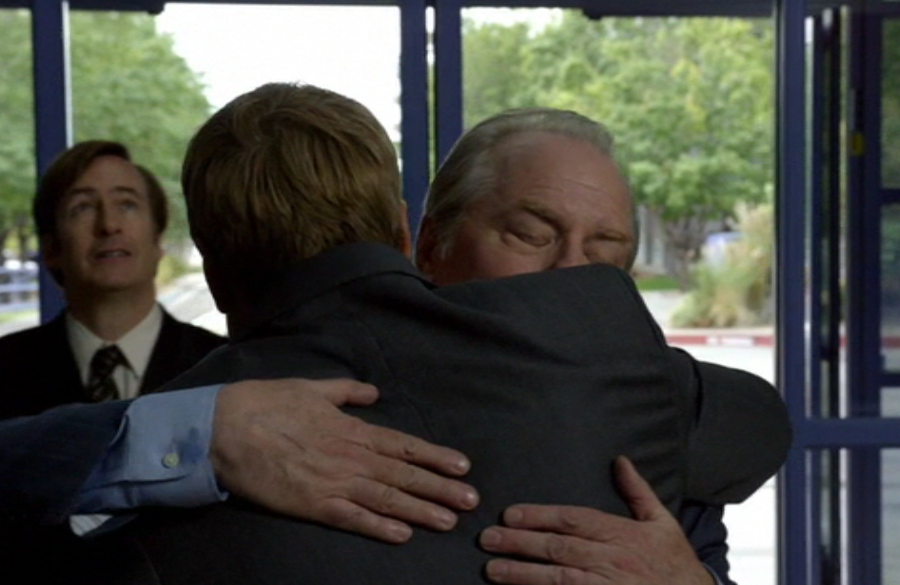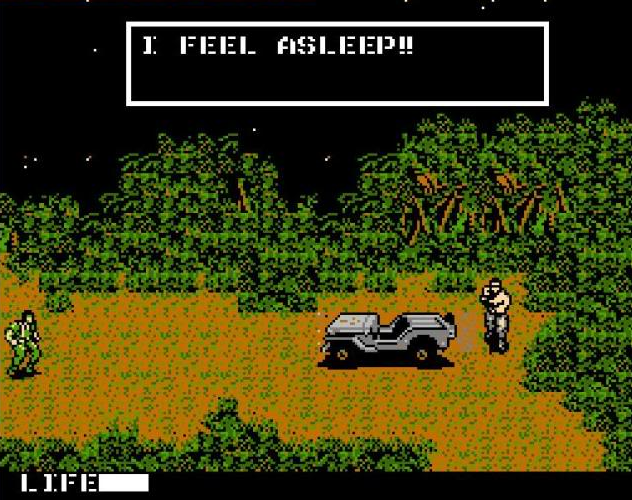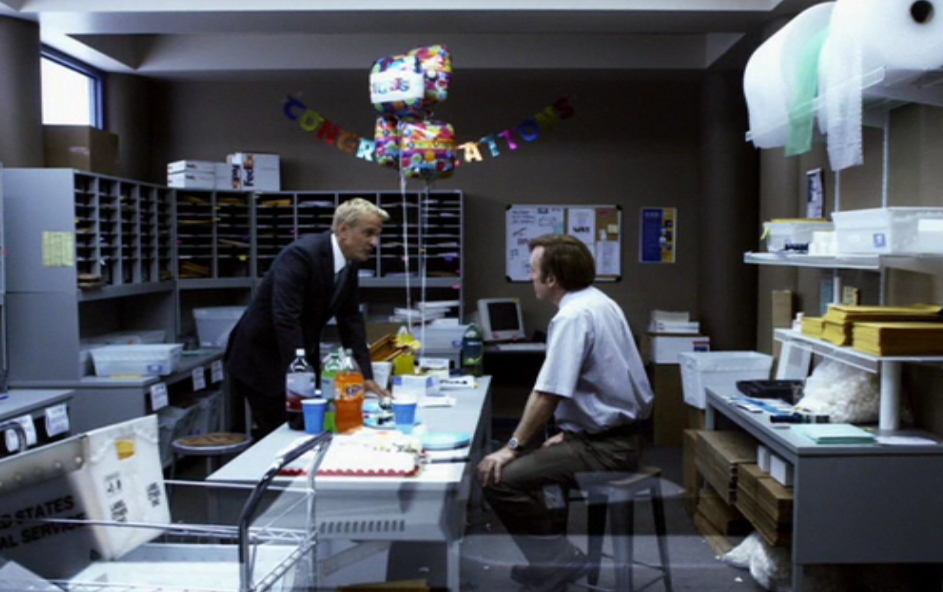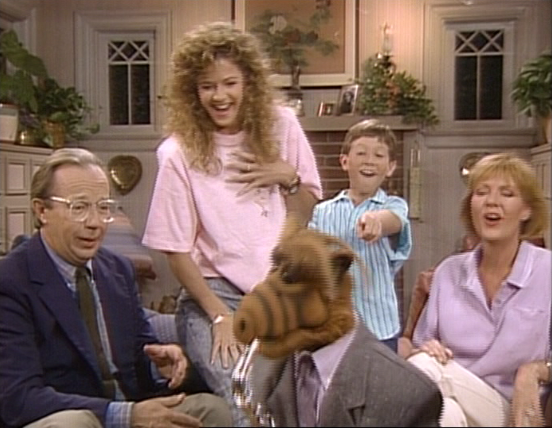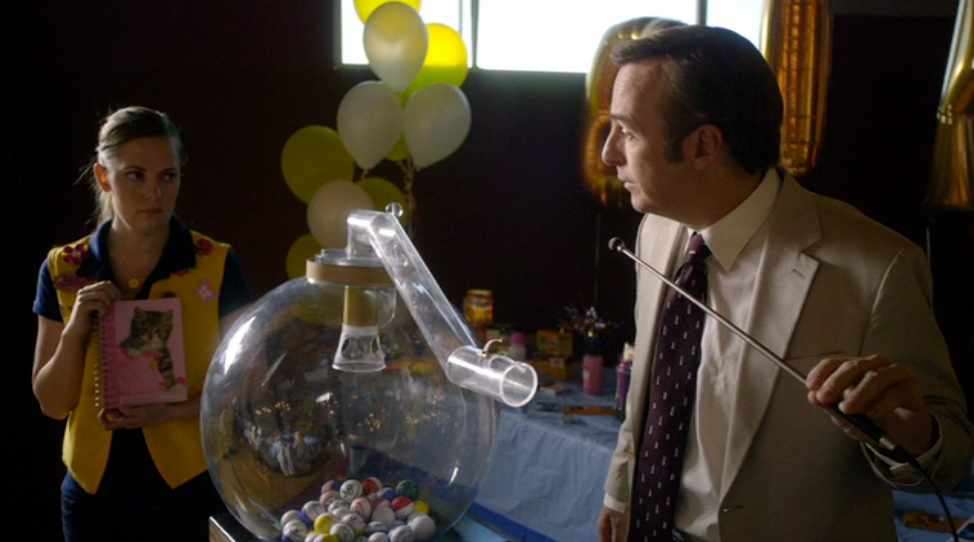Welcome back! This week we…
Oh, fuck. It’s this Thanksgiving hobo thing again? Jesus.
Yeah, it’s part two. Of two, thankfully; we can take some solace in that at least. And if you didn’t catch last week’s episode, no worries; this one opens with over two minutes of clips from it. Having said that, if you didn’t catch last week’s episode, fuck you; none of the clips tell you anything that maters.
It’s really strange. If you’re going to show a recap, at least make it relevant to what we’re about to see. Instead it’s overt, obvious padding, as the “clips” are actually long, unedited conversations between characters. There’s no reason to replay them in full except to eat time. A smarter show would chop out all but the most important soundbites and a few of the better jokes. Here the editors just say, “Fuck it, we’ll spend a whole minute listening to Willie talk to Flaky Pete again.”
It’s padding, and it’s shameless. By the time the credits are over and we get to the actual footage unique to “Turkey in the Straw: Part 2,” we’re 4 minutes into the episode’s 23-minute runtime. It’s as if the writers didn’t actually want to script a second part.
Which, forgive me, forces me to ask why in the living fuck they made this a two-parter to begin with.
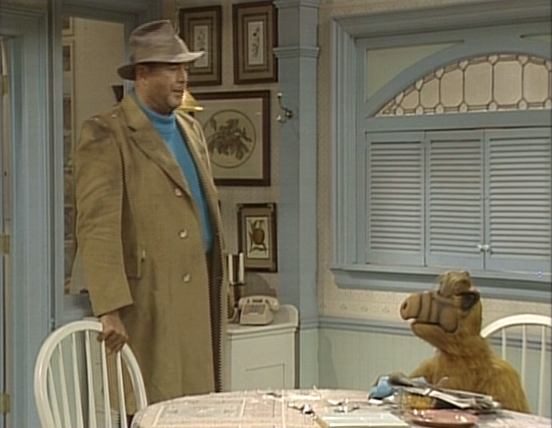
The episode proper opens with a repeat of the final scene of Part 1, with Flaky Pete coming into the kitchen. So just let that sink in for a bit. After four minutes of recap and credits, we open the episode with a replay of something we’ve already seen.
Great.
It’s worth giving it a little more attention than that, though, since two things I didn’t mention in the previous episode come into play here.
The scene itself is a little longer than the previous edit, which makes it play unexpectedly oddly. For starters, Flaky Pete covers his mouth when introducing himself to ALF. We didn’t see that the first time around, and this time I couldn’t figure out why he was hiding his stubble, or whatever he was doing.
Only later did it click for me that this was because the Alien Task Force warned him in Part 1 that ALF might jump down his throat and burst out of his chest, ala (…kinda) Alien. Since I forgot all about that stupid part of a stupid exchange in a stupid episode, I had no idea what stupid shit was going on here.
If you’re going to have two different edits of this scene, why strand the punchline away from the setup? Why not do the fucking Alien gag in the episode that set it up, and leave it out of this one?
Or, wait, didn’t we just have minutes upon minutes of recaps leading up to this? Why not include that line in the clips you’re already fucking showing if it’s supposed to pay off here?
Something else makes this scene play oddly this time around, and it’s actually the opposite of the Alien gag’s problem. See, Part 1 ended with ALF seeing Flaky Pete and saying “rut-roh.” I didn’t bother to mention it then, because I had no everloving idea why ALF was suddenly, irrelevantly channeling Scooby-Doo.
Well, in the longer edit of the scene, that comes later…after ALF unsuccessfully tries to convince this stranger that he’s a dog. Here, when Flaky Pete announces that he’s not fooling anyone, the “rut-roh” makes sense. In the same scene from the previous episode, it was a confusing non sequitur.
So, there you have it. The Alien punchline gets botched here because it’s so far removed from the setup, and the “rut-roh” punchline gets botched there because it’s stripped of its context. ALF sure does two-parters right!
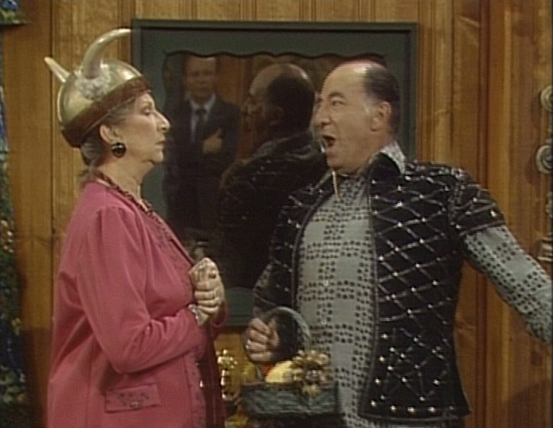
At the Ochmonek house, Mr. and Mrs. O are warbling some made-up German nonsense while Jake plays the drums. Super glad we added you to the cast, Jake. This show would be lost without you.
It goes on for fucking ever.
Really. I’m pretty sure I have a higher Ochmonek tolerance than anyone else on the planet, but this is just them making noise. We are filming them making noise.
…having said that, I do really like the fact that you can see Willie with his arms crossed in the mirror.
That’s a really nice touch, and it’s a perfect reflection of how I watch this show, too.
Of course, we cut to a shot of Willie that has Kate standing where she should be visible in the reflection as well, but she’s not. Kate Tanner, vampire. Confirmed.
Or just terrible blocking. Later we can see the mirror again and suddenly she’s there, so who knows. Maybe she had to go take a shit during one of the takes.
The mirror breaks at the end, with a cheap effect that makes it look like a sheet of tin foil was just bunched up into somebody’s fist. By the time it’s over and we cut back to ALF, we’re eight minutes into the episode.
Eight minutes. A third of the episode.
And nothing has happened.
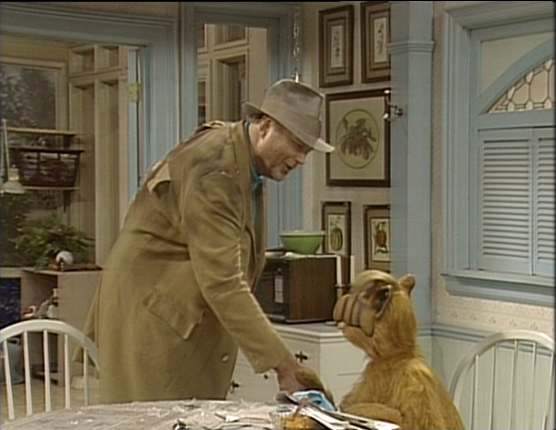
Did this really need to be a two-parter? Again, could this not have been condensed down to one decent episode, instead of two shitty ones?
It’s just like “Someone to Watch Over Me” last season. In both cases, I honestly believe we could have ended up with something good. Probably not great…but something at least fun and watchable. And in both cases, we instead get these painful slogs through act-long stretches in which nothing noteworthy, funny, interesting, important, or memorable happens.
I’ll give “ALF’s Special Christmas” credit for one thing; it was packed wall-to-wall with stuff happening. So much so that it was unintentionally comical just how much bullshit the audience was expected to choke down. But the point is that it was an hour long because Fusco & Friends had that much material.
It was bad material, but, well…so is this. That episode was doubled in length because the story (as it was…) required a larger vessel.
This, along with “Someone to Watch Over Me,” and “Tonight, Tonight,” is twice the length for the sake of being twice the length. It’s ALF telling us that it cares neither about the most effective way of telling its stories nor about respectful usage of its audience’s time.
I mean, look at the screengrab. Look how far into this fucking article you are.
It’s still Flaky Pete and ALF talking. Not even about anything interesting. They’re still introducing themselves. This episode is stalling for time and I hate it. How long does it take for these two assholes to exchange pleasantries and move the fuck along?
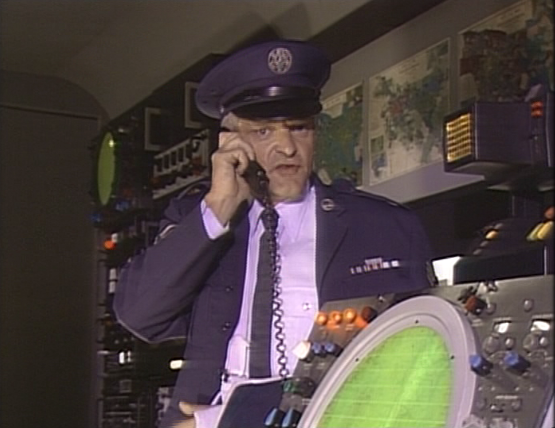
Eventually, thank shitty Christ, the phone rings and it’s the Alien Task Force, doing alien tasks in their forcemobile.
The guy with his arm in a sling is calling Flaky Pete for no reason.
Just kidding. The reason is that the show needs to inject some ham-fisted tension before the commercial break. You know, the commercial break that comes halfway through the episode, which is the point we’re at right now.
And nothing. The fuck. Has happened.
Sgt. Tennis Elbow tells the hobo, “lol sry, I forgot to mention we’re going to kill the alien.”
Flaky Pete gets sad, because the hideous creature he just spent 11 minutes introducing himself to might be put down before it can spread harmful space disease to innocent people.
Over the course of a single episode, a constant escalation of tension would have worked quite well, and the Alien Task Force is a built-in mechanism for introducing that tension. But instead of twenty minutes or so of mounting dread, we get seven days between when these assholes are called and when they finally get to the house.
By that time we’re so sick of waiting that we no longer care if ALF gets flayed alive in the name of science. We just want them to fucking get there so that something will happen.
Then we cut to Willie getting mustard thrown in his stupid dumbass face
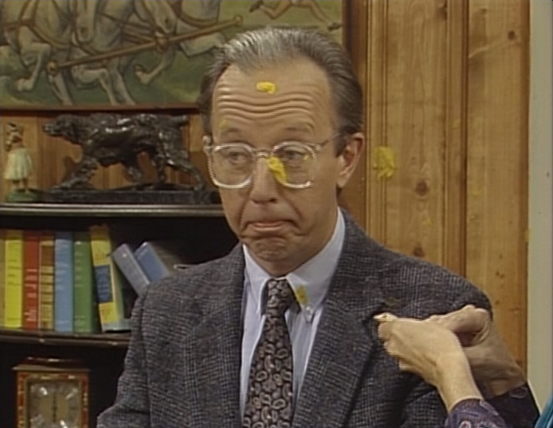
I take it all back. This is the best episode in the history of the world.
Back at the house, ALF is showing Flaky Pete photos of his life on Melmac. It’s a decent moment, full of Melmac lore (see a very lengthy Melmac Facts below), but it’s nothing great. You’d think that once these two finally started having a conversation we’d get to hear something interesting…and, in fairness, we do.
I’ll talk about that a moment, but first, the main thing that stuck out to me is how different Flaky Pete looks without his hat:
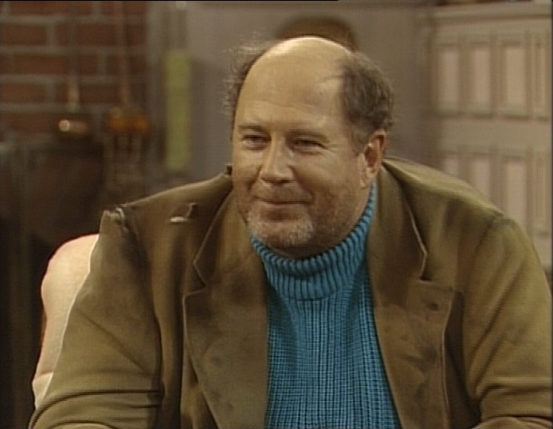
He’s a whole other person…and one that I now recognize.
Yep. That’s David Ogden Stiers.
Look him up; he’s been in a million things. Most notably though, he played Major Charles Winchester on M*A*S*H*.
This is a good actor, folks. Seeing him slumming through “ALF’s Special Thanksgiving” is brutal. It’s probably the biggest career disappointment for anyone in this show, barring maybe Uncle Albert, who played Wilmer in The Maltese Falcon.
Maybe I would have recognized him last week if not for a subconscious reluctance to link ALF and M*A*S*H* in any way.
His IMDB page, though, reassures me that this was not the last gasp of an actor who deserved much better. He’s still working consistently (and has been for what seems like his whole life), which softens the blow quite a bit.
We come very close to an interesting exchange when Flaky Pete reveals he used to be in the military, reacting to the news of Melmac’s nuclear apocalypse with a sense of true horror.
He likens that to his own experience in the armed forces…specifically, the fact that he retired because he didn’t feel anything could be worth blowing up the planet over. Sure, that’s a massively oversimplified perspective on war, but it could build into a really resonant conversation about what happened on Melmac.
It doesn’t, which is disappointing enough. The fact that this comes right after last week’s revelation that there was no war on Melmac — somebody just left a fork in their equivalent of a microwave, I guess — robs it of all meaning entirely.
What a waste of a great opportunity.
Stiers does his best to elevate his material, with a few seconds of genuinely affecting sadness when the Alien Task Force calls him to let them know they’re only 30 minutes away. It doesn’t last, but it’s a flash of talent that the material, quite frankly, doesn’t deserve.
Brian and Jake come into the living room and see ALF chilling with a hobo. Nothing really comes of it, apart from an agonizing few seconds of the camera lingering on Benji Gregory while the kid struggles to remember his only line.
The kids are introduced to the hobo, then they go back to the Ochmonek house to rat him out.
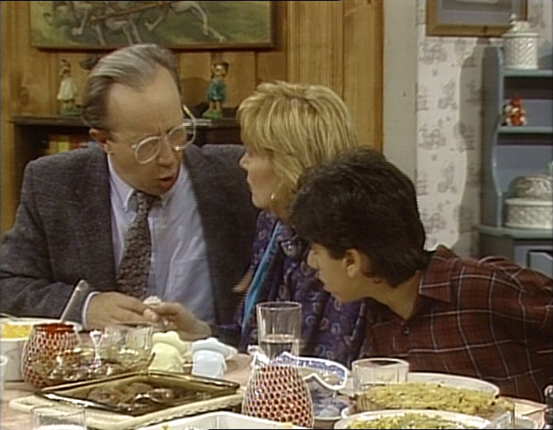
Willie, overcome with excitement, assumes that Flaky Pete reconsidered his offer for those crack rocks.
The Tanners stand up and leave without thanking the Ochmoneks for the meal, the hospitality, or anything at all. But I guess I’m overthinking things. Since when do people make a point of giving thanks on Thanksgiving?
OH FUCKING WAIT
Last week a few commenters called me out for coming down so hard on Willie…specifically the fact that he’s supposed to be a social worker. Rightly so, at least in isolation.
Within that episode, sure, maybe he had a bad day or week at work. Maybe he was just tired of being empathetic and compassionate all the time. Maybe he really needed some downtime with his family, and therefore overreacted when that was threatened.
All well and good, except for the fact that we’ve seen Willie at work, and he’s neither empathetic nor compassionate. We’ve seen him pissing and moaning about people who are nothing but polite to him, and we see it regularly. I couldn’t even tell you the last time he’s expressed gratitude for anything to anyone.
Willie, in a word, can’t suffer from being over-compassionate because he has yet to demonstrate compassion at all.
And, again, it’s worth mentioning that this could be useful in a sitcom. The disparity between his personality and his occupation could be funny. This is where I’d list a few examples of comedy characters who hate their jobs…but it’d be infinitely quicker to list those who don’t. (Leslie Knope. Kenneth Parcell. Jonas Venture, Jr. DONE.)
The insurmountable problem is that the writers are not aware of the disparity…something empasized (unwittingly) in the fact that this episode ends with the Tanners making good with Hobo Pete, but not the Ochmoneks.
As far as the Fuscoteers are concerned, the Tanners have nothing to apologize to them for. They treated shitty people like shit, so everything maintains its rightful balance. That kind of attitude is in no way compatible with a social worker who deserves raises and promotions every handful of episodes…
…and yet the writers don’t realize that. We’ve yet to see evidence of Willie treating anyone who isn’t himself like a human being. That could be a source of comedy. Instead it’s a badge of idiocy.
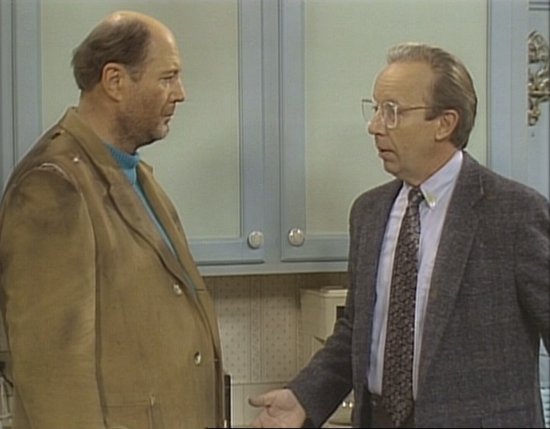
Back at the house, Willie yells for a while at ALF. Then he turns to Flaky Pete, and we get to see Max Wright and David Ogden Stiers in an act-off.
It’s a big moment. Emotionally, it’s what both episodes have been building toward. Sticking these two in the center of it, and offering us no distractions from the heated exchange, the episode is counting on these two men to sell the drama.
Wright gets all of the lines here, giving him a significant advantage. What’s more, all of his lines are engineered to tug at our heart-strings. He pleads with Flaky Pete not to reveal ALF to anyone else, as that alien has become part of their family. He alludes to the danger our title character is in, and throws himself on the hobo’s mercy. He has no idea that the Alien Task Force is on the way, so all of his concern is coming, ostensibly, from the heart.
Stiers, on the other hand, just has to stand there and listen.
Guess which one of them manages the more affecting performance.
What an insult to this guy to have to play third banana to such an undeserving cast of imbeciles.
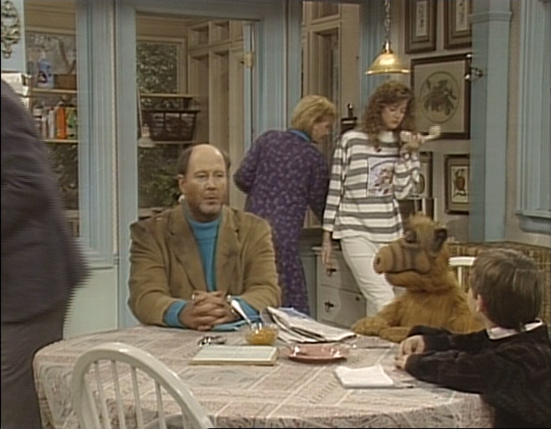
There’s a genuinely nice, understated moment when the phone rings once. That was the Alien Task Force’s signal to Flaky Pete that they’re there.
Lynn answers it and says, “They must have hung up,” without any real interest.
Nobody takes note.
But Stiers sells the moment of internal conflict. He feels awful about what he’s done…but he’s already done it. It’s too late.
He excuses himself to wash his hands, and you can feel the rock in his stomach.
Whether or not the writers intended it, this functions as a lovely moment of awakening. A homeless man who’s been kicked around and mistreated realizes that he kicked around and mistreated somebody else. It’s not empowering to him…it’s devastating.
Stiers knows how to act. I have to believe it’s no coincidence that he does his best work in ALF when he does it silently, without having to worry about the garbage they handed him on the script.
The family starts to sing about God (yes, fucking really fucking fucking really) as Flaky Pete slips outside to meet with the Alien Task Force. We hear the Thanksgiving hymn continue in the background, making it pretty difficult to hope that he doesn’t turn the family in.
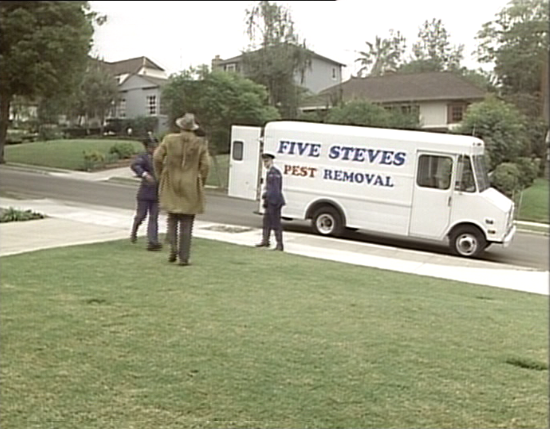
FIVE STEVES PEST REMOVAL, everyone.
Anyway, this is Flaky Pete’s crisis of conscience. Whatever he does, he’d best do it right. He approaches the Alien Task Force (who are presumably going incognito due to the van, and yet still march around in broad daylight in full Alien Task Force regalia), takes a deep breath, and does what he knows must be done.
In a very nice — but extremely anticlimactic, considering an hour of screentime has built to this — resolution, Flaky Pete tries to pass himself off as a loony who believes himself to be an alien.
The Alien Task Force bitches for a bit about missing the game and then drives away without any further examination of the area, ignoring the astonishing coincidence that this false positive took place at the exact same address as the previous two false positives. They don’t even bother to ring the doorbell.
Why — WHY — does this organization even exist?
They shrug and leave after about five seconds of mindless hobobabble, and we return to the Tanners who are sitting around the table, holding hands and literally singing Christ’s praises.
What a treat. Exactly where I was hoping I’d end up in a show about an alien…watching some family of white assholes singing about God.
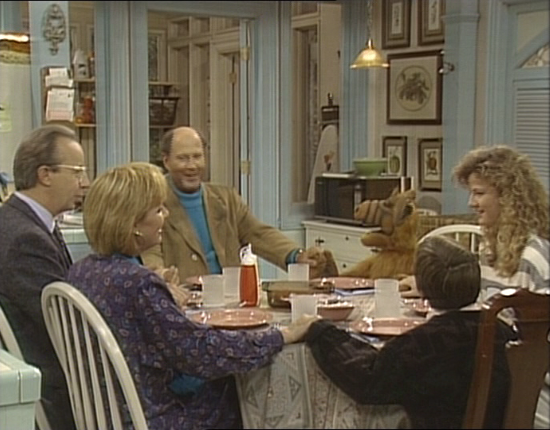
So, yeah, not only is Willie a social worker, but he’s a devout Christian. Apparently.
What would Jesus do? Well, he’d probably make fun of his fat neighbors and act ungrateful for everything they’ve done for him.
Honestly, if this is Willie’s idea of being a good Christian, maybe his understanding of social work is equally skewed. Then again, this entire universe’s understanding of social work is skewed, so we’ll just chalk it up again to a room full of writers not giving one lone shit about their own show.
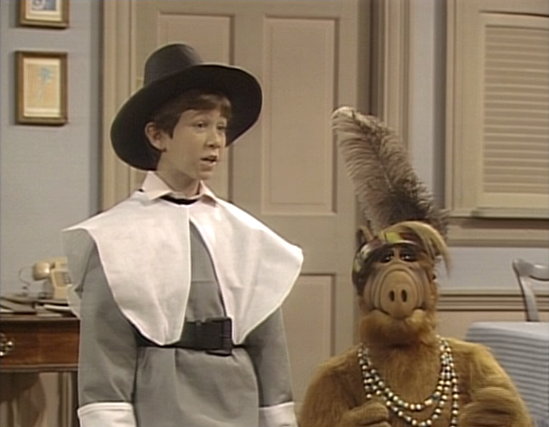
The episode ends with Brian performing his Thanksgiving play for the family, the hobo, and us. It’s a great chance to squeeze in some casual racism with ALF dressing up as an Indian and making hilarious jokes about being kidnapped by “the white man.” It’s every bit the squirt of garbage water we all deserve to get in our eyes for sitting through this shit instead of reading a book.
Brian and Lynn then explain the meaning of Thanksgiving, which we’re told is something that brings the whole world together…even though it’s an exclusively American holiday. The writers are aware that America is not the world, right?
…right?
Just before the credits come up, Willie adds that they have one celebrant from Melmac, and then tears up.
I don’t know why. I think we’re supposed to believe that his heart has been touched. Instead it just looks like he realized that his career has peaked with a show about a talking throw-rug.
“Turkey in the Straw,” as a whole, sort of sucks. It sort of really sucks. But it’s still the best thing I’ve seen in season three.
I’m conflicted. On one hand, I’m grateful for that much. On the other, I truly hope this isn’t actually as good as it gets. Do we at least have another Jodie or Dr. Dykstra episode to look forward to? I really fucking hope so…
Flaky Pete departs, and Willie says he hopes he stays in touch. He sleeps in your compost heap, asshole. I think if there’s going to be any kind of ongoing friendship, the onus is on you.
MELMAC FACTS: Flaky Pete concludes that ALF is from a cold planet, due to his fur, and mentions that his feet are suited to a muddy terrain, probably reddish-brown so that he’d blend in. His large ears suggest a thin atmosphere that doesn’t transmit sound well, and his big nose indicates a scarcity of oxygen. All very interesting, but ALF neither confirms nor denies these conclusions, because he’d rather say, “Hey! Watch the wisecracks about the schnoz!” The fact that Flaky Pete cracked wise in no way isn’t enough to quell to laughter of dead people, so fuck you for caring. Planet K-171 (I have no idea if this even exists, unlike Chiron from “Weird Science” which was used as an interesting way of weaving ALF’s mythology into our own) is known to ALF as Neesbeck, and their “national bird” is dust. Why not “global bird?” ALF regularly seems to treat Melmac like a nation as well as a planet, as though the two are interchangeable…I guess that’s just a general (and inexplicable) confusion within in the show. Melmac had orange skies and green ground. The Orbit Guard motto was “To guard the orbits, whether they need it or not.” ALF never saw combat when he was one of them. HAPPY FAPPY TO ALL AND TO ALL A GOOD NIGHT
